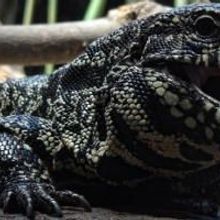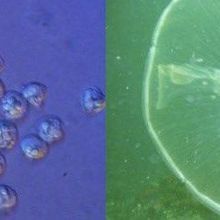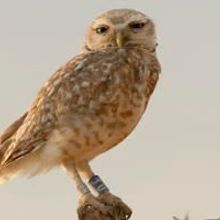Login
Subscribeevolution

Who Sleeps?
The Scientist and Jerome Siegel | Mar 1, 2016 | 10+ min read
Once believed to be unique to birds and mammals, sleep is found across the metazoan kingdom. Some animals, it seems, can’t live without it, though no one knows exactly why.

Week in Review: February 22–26
Jef Akst | Feb 26, 2016 | 3 min read
Questions about how E. coli evolves; spermatids in a dish; fighting bacteria with virus-like molecule; what drives metastasis; antibodies fight Ebola in monkeys

Similar Data, Different Conclusions
Ashley P. Taylor | Feb 23, 2016 | 6 min read
By tweaking certain conditions of a long-running experiment on E. coli, scientists found that some bacteria could be prompted to express a mutant phenotype sooner, without the “generation of new genetic information.” The resulting debate—whether the data support evolutionary theory—is more about semantics than science.

iDarwin
Jef Akst | Feb 1, 2016 | 3 min read
A synthetic interview with the father of evolutionary theory, now available as a smartphone app, teaches students and the public about the famed biologist.

Fighting Back
Mary Beth Aberlin | Feb 1, 2016 | 3 min read
Plants can’t run away from attackers, so they’ve evolved unique immune defenses to protect themselves.
Jason Holliday: Tree Tracker
Jef Akst | Feb 1, 2016 | 3 min read
Associate Professor, Virginia Tech, Department of Forest Resources and Environmental Conservation. Age: 37

Chat With Charlie
The Scientist | Jan 31, 2016 | 1 min read
See a preview of the app that lets you ask questions of a virtual Charles Darwin.

Lizard Secretes Heat
Bob Grant | Jan 25, 2016 | 2 min read
Researchers confirm the unprecedented endothermic abilities of a South American reptile.

How Multicellularity Arose
Jef Akst | Jan 11, 2016 | 1 min read
Researchers identify a molecule that may have been key to the surprisingly common transition from single-celled ancestors to today’s complex, multicellular organisms.

Genome Digest
Catherine Offord | Jan 7, 2016 | 4 min read
What researchers are learning as they sequence, map, and decode species’ genomes

To Retain a Brain
Karen Zusi | Jan 1, 2016 | 4 min read
Exceptional neural fossil preservation helps answer questions about ancient arthropod evolution.

All Together Now
Mary Beth Aberlin | Jan 1, 2016 | 3 min read
Understanding the biological roots of cooperation might help resolve some of the biggest scientific challenges we face.

Contributors
Karen Zusi | Jan 1, 2016 | 3 min read
Meet some of the people featured in the January 2016 issue of The Scientist.

Inventing Teamwork
The Scientist | Dec 31, 2015 | 1 min read
What can social networks among hunter-gatherers in Tanzania teach us about how cooperation evolved in human populations?

Maintaining Cooperation
R. Ford Denison and Katherine Muller | Dec 31, 2015 | 2 min read
How organisms keep their biological partners from cheating

Ancient Irish
Jef Akst | Dec 30, 2015 | 2 min read
The genomes of a 5,200-year-old woman and three 4,000-year-old men yield clues about the founding of Celtic populations.

Dog Origins Disputed
Karen Zusi | Dec 17, 2015 | 2 min read
A genomic study suggests that dogs diverged from wolves in Southeast Asia 33,000 years ago, contrary to reports placing their origins elsewhere on the continent.

Constant Evolution
Ruth Williams | Dec 15, 2015 | 3 min read
Bacteria growing in an unchanging environment continue to adapt indefinitely.

Mining the Mite-ochondrial Genome
Tracy Vence | Dec 14, 2015 | 1 min read
Phylogenetic analysis of DNA isolated from human hair follicle–dwelling mites shows that different lineages of the arthropods are associated with hosts with different regional ancestries.

Owl Be Darned
The Scientist | Dec 4, 2015 | 1 min read
Researchers studying city-dwelling birds are learning about which animals are more suited to urban life.